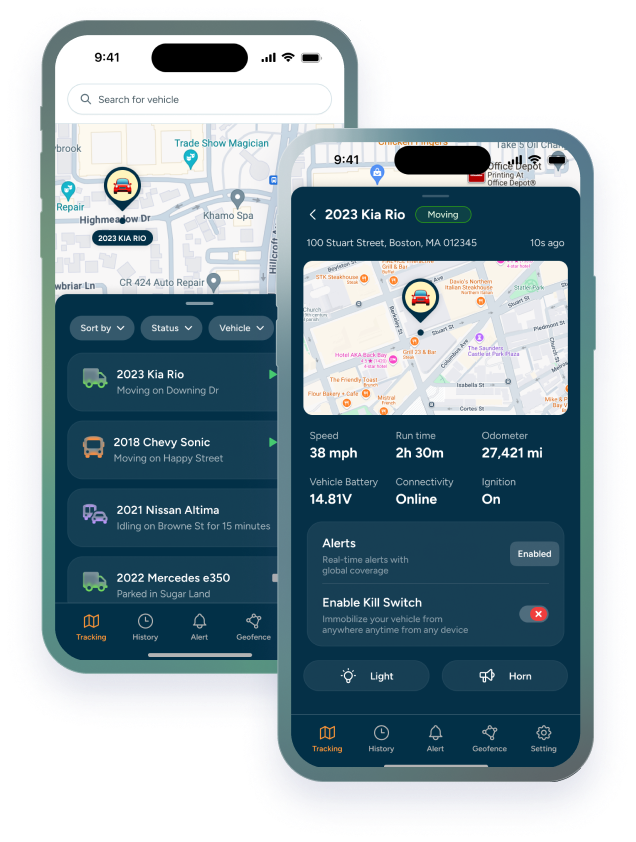In the era of connected technology, the quest to keep track of our belongings has become simpler with the advent of tracking devices. Two prominent contenders in this field are GPS trackers and Apple AirTags. Both offer the ability to track items using cutting-edge technology, but they come with differences in functionality and features. Let’s delve into the comparison between GPS trackers and Apple AirTags to determine which one best suits your tracking needs.
Understanding GPS Trackers:
What are GPS Trackers?
GPS trackers utilize the Global Positioning System to accurately determine and transmit location data. These devices provide real-time tracking capabilities, allowing users to keep tabs on their assets, vehicles, or personal items remotely via an app or web interface.
Benefits of GPS Trackers:
- Real-time Tracking: GPS trackers offer precise, real-time location data, enabling users to monitor the whereabouts of their assets or vehicles continually.
- Fleet Management: These trackers are extensively used in fleet management, aiding businesses in optimizing routes, enhancing driver safety, and monitoring vehicle performance.
- Asset Tracking: GPS trackers are ideal for tracking valuable assets, ensuring their security and preventing loss or theft.
- Long Battery Life: Many GPS trackers boast extended battery life, providing consistent tracking without frequent recharging.
Pros and Cons of GPS Trackers:
- Pros: Accurate real-time tracking, suitable for various applications like fleet management and asset tracking, and extended battery life.
- Cons: Some GPS trackers can be larger in size, requiring a clear line of sight to satellites for optimal performance.
Apple AirTag Explained:
What are Apple AirTags?
Apple AirTags are small Bluetooth-enabled tracking devices designed to help users find personal items like keys, bags, or wallets. These tags rely on the “Find My” app ecosystem to pinpoint the location of tagged items.
Benefits of Apple AirTags:
- Integration with Apple Devices: AirTags seamlessly integrate with the Apple ecosystem, allowing users to locate items via the “Find My” app on iPhones and other Apple devices.
- Asset Tracking for Personal Items: Ideal for tracking personal items like keys or bags, these tags use Bluetooth signals to help you find items when they’re nearby.
Pros and Cons of Apple AirTags:
- Pros: Seamless integration with Apple devices, user-friendly interface via the “Find My” app, and compact design suitable for tracking personal items.
- Cons: Limited to Apple’s ecosystem, relies on Bluetooth signals and may not provide real-time tracking like GPS devices.
GPS Tracker vs Apple AirTag: Which One’s Best?
Use Case Scenarios:
- For Fleet Management: GPS trackers excel in fleet management, offering real-time tracking, route optimization, and comprehensive data for fleet operations.
- Personal Item Tracking: Apple AirTags are well-suited for tracking personal items due to their small size and integration with the Apple ecosystem.
Battery Life and Tracking Capabilities:
- Battery Life: GPS trackers often offer longer battery life compared to Apple AirTags, providing continuous tracking for an extended period.
- Real-time Tracking: GPS trackers provide precise, real-time tracking, while AirTags rely on Bluetooth signals and may not offer the same level of accuracy.
Conclusion:
Choosing between a GPS tracker and an Apple AirTag largely depends on the intended use and tracking requirements. GPS trackers excel in providing real-time tracking, making them ideal for fleet management and asset tracking. Conversely, Apple AirTags are compact, seamlessly integrate with Apple devices, and are best suited for tracking personal items within close proximity.
For fleet management and asset tracking where real-time location data is critical, GPS trackers stand out with their accuracy and extended battery life. Meanwhile, for conveniently locating personal items within the Apple ecosystem, Apple AirTags offer simplicity and ease of use via the “Find My” app.
Ultimately, the choice between a GPS tracker and an Apple AirTag boils down to the specific needs of the user. Consider the intended use case, battery life, real-time tracking requirements, and compatibility with existing devices to determine which tracking device best fulfills your tracking needs.
This blog post provides an in-depth comparison between GPS trackers and Apple AirTags, highlighting their functionalities, benefits, and use cases to assist readers in choosing the ideal tracking device for their specific requirements.

Comments